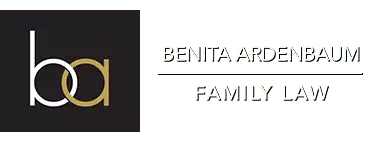Child Maintenance Law South Africa
The biological or adoptive parents, guardian or grandparents of a child are liable to maintain that child. The grandparents are only liable to pay maintenance in circumstances where the parents are unable to do so.
What constitutes maintenance and how much is payable?
Maintenance includes the provision of food, clothing, accommodation, medical care and education. In terms of the common-law maintenance for a child is payable until such time as the child becomes self-supporting. The amount of maintenance payable depends on the needs of the child and the financial means of the person or persons liable to pay such maintenance. Such persons will be liable to pay maintenance on a pro rata basis based on their means.
Child Maintenance Disputes
Most child maintenance law disputes (apart from interim maintenance in divorce proceedings) are handled by the maintenance court, which is situated at most magistrate’s courts around the country. You can apply to the maintenance court for a maintenance order, where none is in place, or for a variation or discharge of an order, where there is an order in place. The applicant is required to complete the necessary forms and provide certain documents to the maintenance officer, including a copy of any existing order, copy of the applicant’s identity documents, copies of birth certificates of the children and three months bank statements.
The maintenance officer will thereafter issue a “directive” or a “subpoena”, which will be served on the respondent i.e. the person against whom the order is sought. Both parties will be directed to appear at court on a future date and will be called upon to provide certain documents to the court. The maintenance officers do what they can to get the parties to settle the dispute without the need for a formal enquiry, but should this prove impossible, a date will be set for a formal hearing.
It is vital that you, as either the applicant or the respondent, make a full and frank disclosure to the court of your income and expenditure, which must include payslips, banks statements and where necessary, invoices, receipts and till slips. It can become difficult to prove the other party’s ability to pay maintenance, in circumstances where that person is self-employed. In such circumstances, it will be necessary to request the maintenance officer to issue a subpoena against the other party’s bank(s) in order to ascertain their income and expenditure.
The formal hearing
A formal hearing in a maintenance matter is run like any other trial in which oral evidence is heard from both parties and any other witnesses. Witnesses can be questioned by either party and the magistrate. It is up to the applicant to prove his or her case. For example, where the applicant is applying for an order for maintenance, he or she must prove that there is a need for maintenance, how much maintenance is required and what he or she earns. The Respondent can dispute these facts and is required to prove his or her means and ability to pay the amount claimed or any other amount which the court may order.
How can we help?
Maintenance matters can become extremely litigious where the parties are unable to reach agreement on the amount of maintenance required and/or their ability to pay. Where there is a possibility that the matter will be referred to a formal hearing it is best to seek legal advice from the outset to ensure your case is properly managed and that the correct documents are put before the court. Our trained and experienced child maintenance attorneys can assist you, whether you are the applicant or respondent in a maintenance matter to ensure your matter is handled quickly and as effectively as possible.
For direct answers to your specific personal questions, please contact us directly.
